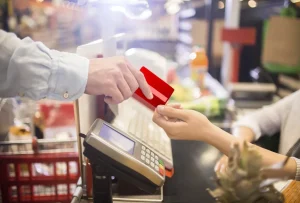The 1O April is known worldwide for being a day of pranks, and there are also some false things going around about iFood.
It's true that in 1O de Abril is free to tell a few lies. This is a tradition that began in the 16th century, but no one knows exactly where.
One of the first records comes from France, in 1564, when King Charles 9O changed new year from april to january. For some time, many people (unaware of the change or out of resistance to it) continued celebrating the “turn” from the end of March until the first of April, as was customary. Therefore, they began to be called “April Fools” and receive invitations to parties that didn’t exist.
Over the centuries, even the media joined in on the joke – and many people fell for it. A famous prank was the one played by the BBC in 1957, when it aired a report on Swiss farmers harvesting spaghetti of trees and praising that year's harvest. The lie angered many Britons.
To remain in good standing with those who follow our news, this April 1st the iFood News goes in the opposite direction. Today, we debunked some of the main rumors about the company and only bring truths about iFood; check it out below!
Is iFood a Brazilian company?
Yes, Brazilian. It all started in 2011, with the creation of Disk Cook, in São Paulo, by two Brazilian partners. At first, it was a printed menu guide, and people called a telephone center to place orders.
In this first version, orders were made through a telephone exchange. And it was at this stage of the business that the company received, in 2013, investments from Mobile, which is also Brazilian and was founded by Bahian Fabricio Bloisi, now president of iFood.
Soon after, the iFood website and application that you know today were created, with technology developed here.
Will iFood leave Brazil?
In discussions about the regulation of work in applications, there was a lot of fake news circulating saying that iFood is going to leave Brazil. None of that.
The truth is that, as a Brazilian company that has been in operation for over a decade, iFood continues to invest in Brazil to grow and offer the best services and opportunities for consumers, delivery people and partner establishments.
Is iFood against the regulation of delivery people?
Nothing more fake. iFood has supported the regulation of work mediated by platforms since 2021 and seeks regulation for delivery that meets the particularities and needs of couriers, which are different from those of drivers.
With this, iFood wants to protect delivery people and preserve the sustainability of its ecosystem, which generates 873 thousand jobs and serves 40 million consumers. I'll give you one more piece of information: 87% of delivery drivers support regulation, as long as autonomy and flexibility are maintained.
Does iFood not give 100% of the tip to the delivery person?
On the contrary: iFood passes on 100% of tips which are given by customers to delivery people. The delivery man or woman receives tips through a bank transfer, made together with the weekly payment for deliveries made.
In 2023, iFood transferred R$ 37.8 million in tips to delivery drivers, which were given by customers through the app.
Does the iFood delivery person have to go up to the apartment?
There are people who demand that delivery people come up to their apartment to make the delivery, arguing that this is the right thing to do. But iFood clarifies that delivery drivers are not required to go up.
“The delivery person’s obligation is to deliver to the first point of contact that exists at the person’s home. If it is in the condominium, this point is the entrance. This is the recommendation given to delivery people and the communication given to consumers”, explains Diego Barreto, vice president of strategies and finance at iFood.
In some cities, such as Manaus and Fortaleza, and states, such as Paraíba, there are already laws saying that delivery drivers are not required to go to customers' apartments.
This not only speeds up the delivery itself but also shows respect for the work of the delivery man, who can only make the next delivery after completing that one.


